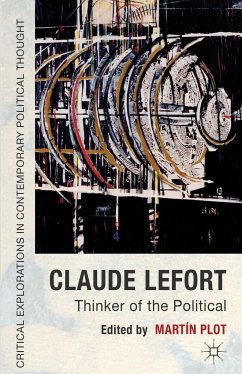Nicht lieferbar

Nietzsche's Machiavellian Politics
Versandkostenfrei!
Nicht lieferbar
Weitere Ausgaben:
In this exciting new study, Don Dombowsky proposes that the foundation of Nietzsche's political thought is the aristocratic liberal critique of democratic society. But he claims that Nietzsche radicalizes this critique through a Machiavellian conversion, based on a reading of The Prince , adapting Machiavellian virtù (the shaping capacity of the legislator), and immoralism (the techniques applied in political rule), and that, consequently, Nietzsche is better understood in relation to the political ideology of the neo-Machiavellian elite theorists of his own generation.












